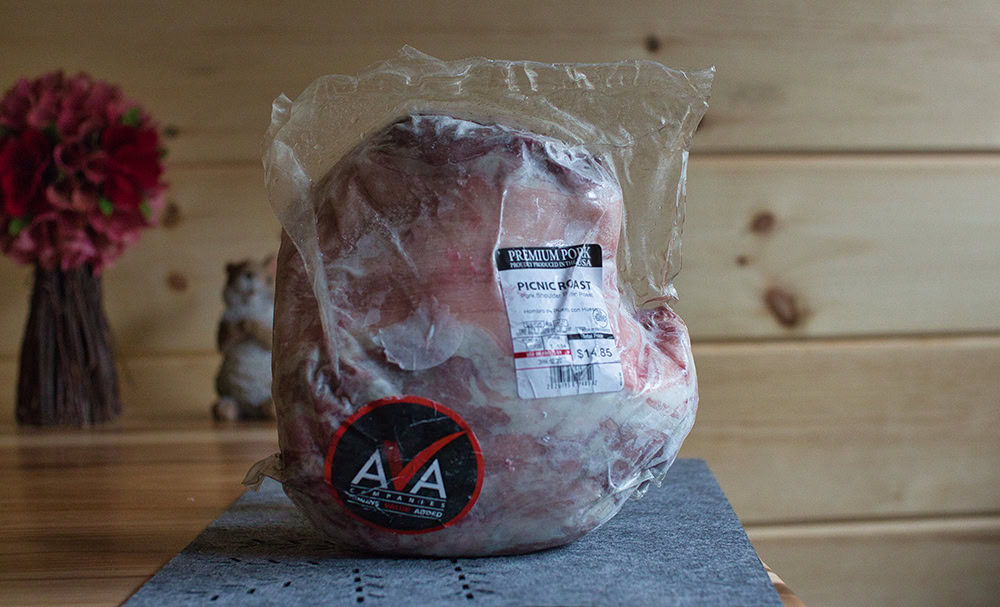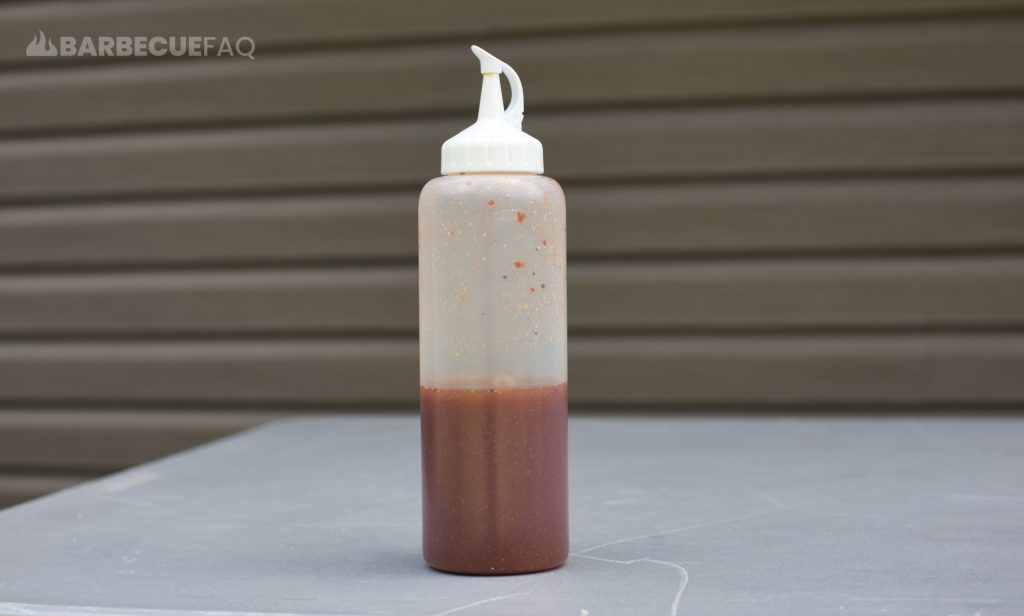The money muscle is a cylindrical tube of muscle that’s found on the opposite end of the blade-bone on a Pork Butt (Boston Butt).
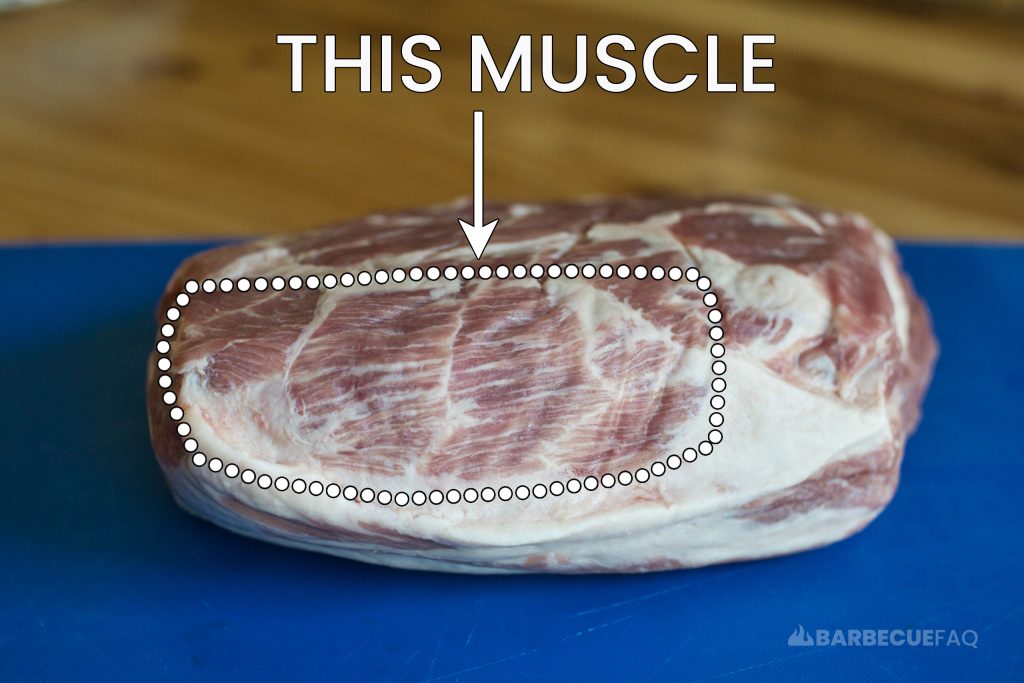
The money muscle is easily identified on a pork butt as it has striations of intramuscular fat that run through its length – and it has a tube-like shape like a loin or tenderloin.
This Marbling is actually uncharacteristic of pork cuts which is why it’s so prized.
Most cuts of pork have intermuscular fat (fat that separates individual muscles) as apposed to intramuscular fat (fat found between lean muscle tissue).
Below is a pork butt I cut into pork steaks
Part of the money muscle is on the left which is heavily marbled but if we look at the other pork steaks, there’s swaths of fat and lean meat with some marbling.
But nowhere to the extent of the money muscle.
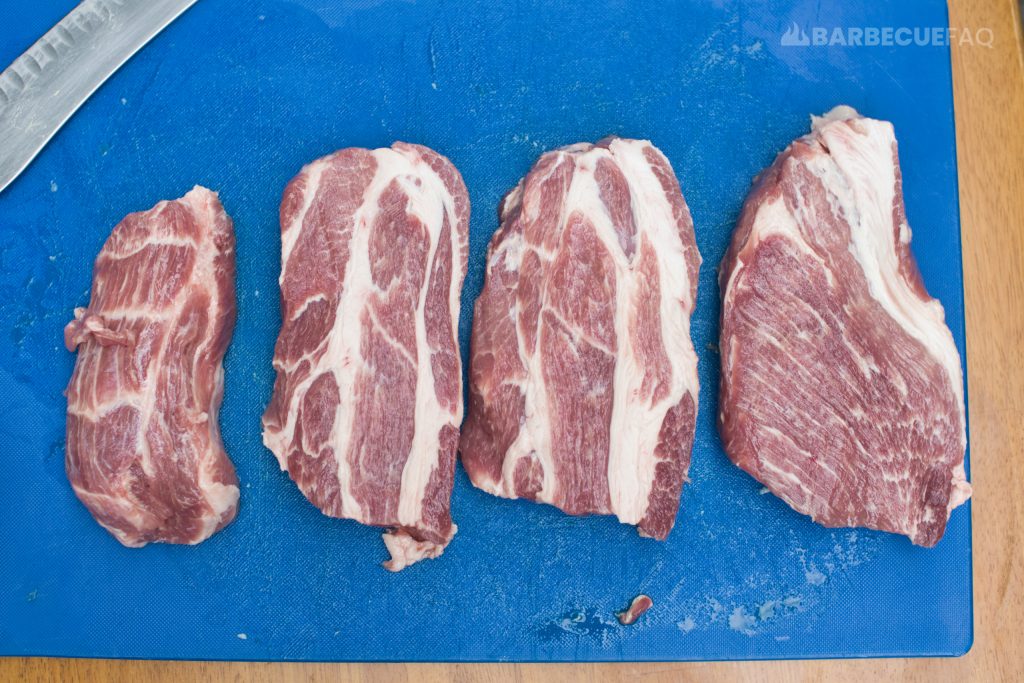
Why is it Called the “Money Muscle”?
This namesake is derived from competition BBQ as it’s what gets competitors “in the money.”
Most people aren’t barbecue competitors and simply smoke pork butt to pull the entire cut, money muscle included.
At home you could pull this muscle off and slice it up though, it’s the best pork tenderloin you’ll ever have.
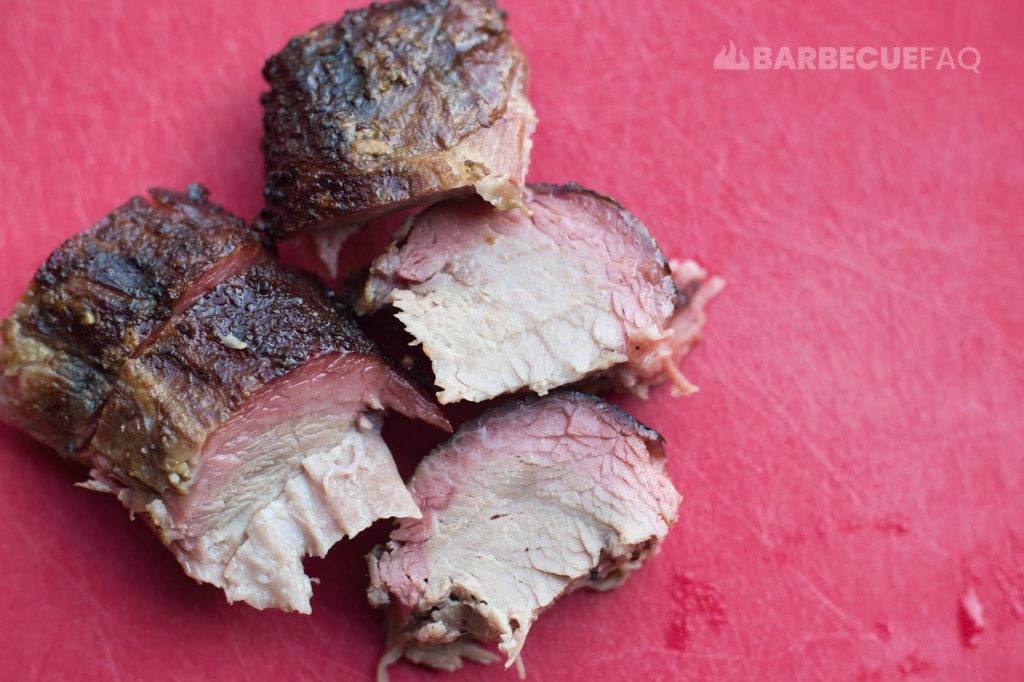
Different organizations will have their own rules with regards to how it’s cooked at a competition.
If you’re entering a competition like KCBS, consult their website.
Other Names You’ll See for the Money Muscle
Scientifically, it’s the pectoralis profundi muscle.
Non-scientifically, you might hear it be called pork collar (neck fillet), faux loin, or tiger muscle.
- Tiger Muscle refers to the stripes or fatty striations found in the meat.
- Faux loin is in reference to its tube-like shape that resembles pork loin or pork tenderloin.
- Pork collar (neck fillet) – Technically, the collar is a muscle that is cut from the shoulder portion that runs from the neck to the tip of the loin; The pork collar cut includes part of the “money muscle.”



